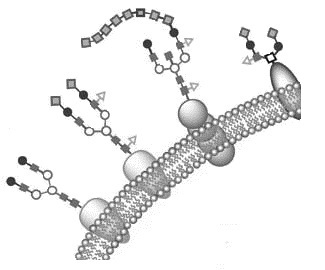
HAS-UP Translational Glycomic Research Group
The overall goal of Group is to develop and apply new integrated technologies for the deep glycomics analysis of circulating tumor cells from human and animal samples and specifically isolate and target biomedically relevant glycoproteins from hundreds to a few thousand cells for diagnostic and therapeutic applications. There are many important studies that are not conducted where samples at this low level are only available. The goals of the Momentum-III Research Group challenges present day glycomics technology in terms of sampling, sample handling, ultra sensitive microfluidics based separation techniques in conjunction with mass spectrometry and novel informatics tools. This project brings together world-class expertise in multiple technological areas. The PI, Prof. Andras Guttman, is widely known for his work in bioanalytical technologies, specifically glycoprotein separations/analysis and glycomics. The microfluidic sample preparation subproject component will be directed by Prof. Mizsey (MUKKI, University of Pannonia, Veszprem), who is well-established in translational microfluidic device designs. The informatics subproject component will bedirected by Dr. Laszlo Hajba (University of Pannonia) a pioneer in computational and informatics methods. The sampling/sample preparation part will include new approachesfor trapping circulating tumor cells by immuno- and other affinities onto microfabricated nano-structures (e.g., pillars, nanotubes, etc.), followed by microfluidiclysis of cells, glycoprotein capture, enzymatic release of the glycans, fluorophore labeling followed by separation and analysis, all with a new generation of chemically modifiedsurfaces to minimize sample losses at such low sample levels. The microfluidic system will be coupled to capillary electrophoresis (CE) or capillary electrochromatography (CEC) with ultra high separation power and sensitivity via ESI-MS. An informatics platform will be developed to analyze the deep glycomics and to combine with other data sets, e.g. transcriptomic microarray and proteomics data to obtain biological and clinical insight. Applications will focus on the analysis of circulating tumor cells, involving samples with only a few thousand or fewer cells. Service projects will be established to examine clinical tissue samples with higher levels of cell number. Dissemination of research methods, tools, and results will be based on (1) laboratory training; (2) short courses; and (3) focused conferences. We envision that the tool we develop by the help of this project can be used inclinical treatment of cancer by scavenging blood-born circulating tumor cells before theyinitiate the metastatic process.
